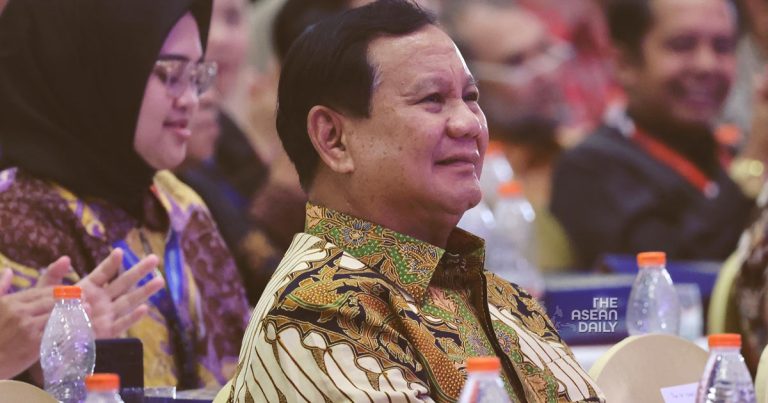17-8-2023 (JAKARTA) As Indonesia approaches pivotal presidential elections in six months, current President Joko Widodo, affectionately known as Jokowi, has avoided explicitly endorsing any candidate to succeed him. However, it has become Indonesia’s worst-kept secret that Jokowi increasingly sees Defence Minister Prabowo Subianto as the ideal person to take over the presidency in 2024.
Jokowi is well known for his penchant to communicate intentions subtly through symbols rather than outright declarations, a classic trait of Javanese politicians. While maintaining a facade of impartiality, he has rewarded Prabowo with frequent photo opportunities and signals leaked to the media to portray their close working relationship. This bolsters Prabowo’s image as Jokowi’s anointed successor, a strong endorsement given Jokowi’s sky-high approval ratings of over 80%, the highest of his presidency amid Indonesia’s current economic prosperity.
Indonesia’s economy has expanded by 5.2% annually over the past year, with inflation a modest 3%. Ordinary citizens have benefited from increased opportunities, social welfare programmes, and healthcare subsidies under Jokowi’s leadership. Benign economic conditions have underpinned his popularity and strengthened Prabowo’s case as the continuity candidate.
In pre-election polls, Prabowo narrowly leads Central Java governor Ganjar Pranowo, with former Jakarta governor Anies Baswedan so far failing to gain momentum as the opposition’s challenger. However, Ganjar faces headwinds due to his close association with Megawati Soekarnoputri, the controversial chair of the nationalist PDI-P party that both he and Jokowi hail from. Jokowi has an uneasy relationship with the politically polarising Megawati.
Should Anies falter to make the ballot or be eliminated in the first round of voting, polls predict Prabowo would win the presidency outright or prevail in a runoff. He remains the fallback option for voters disinclined to support Anies. Prabowo’s established national profile and perception as Jokowi’s favoured successor give him an edge six months out from the election.
A former general who defended the Suharto dictatorship, Prabowo has reinvented himself as a party politician through his Gerindra party. While avoiding outright pledges, he has consulted Jokowi on election strategy and signalled general policy continuity if victorious. In contrast, some perceive Ganjar as making too many pre-emptive concessions to Megawati around cabinet positions.
Despite progressive criticism of Prabowo’s authoritarian past, most voters are too young to remember the Suharto era or are not deterred. Over half the electorate will be under 40, a demographic enamoured by Prabowo’s maverick style and unabashed nationalism. His message resonates at a time when many feel the post-Suharto democratic system has become excessively “liberal”.
Major economic policies brought in under Jokowi like cracking down on raw material exports to boost downstream manufacturing are now accepted across the political spectrum. Initiatives like developing electric vehicles and raising Indonesia’s position in global supply chains through protectionism have been widely credited for recent growth and strengthened the rationale for continuity.
While the campaign will focus on bread-and-butter issues, analysts believe Prabowo and Ganjar differ most prominently on foreign policy where electoral priorities are less relevant. Ganjar is an novice while Prabowo is vastly more globally oriented and inclined to take an assertive, hands-on role shaped by his realist geopolitical perspective. Only after the polls would Indonesia discover how this plays out in practice.
Regardless of who emerges victorious, Jokowi’s ongoing commitment to old Javanese political subtleties means his favoured candidate remains anyone’s guess. Yet through symbols and whispers, he has cemented Prabowo’s status as frontrunner to inherit the presidency and steer Indonesia forward from 2024.




